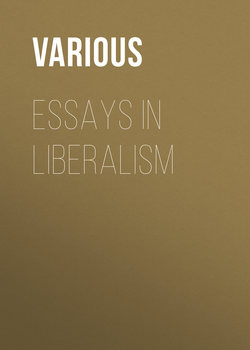Читать книгу Essays in Liberalism - Various - Страница 14
THE BALANCE OF POWER
By Professor A.F. Pollard
Where the Line is Drawn
ОглавлениеThere is yet another fatal objection to the Balance of Power due to the change in circumstances since the days of Castlereagh. He could afford to think only of Europe, but we have to think of the world; and if our specific has any value it must be of world-wide application. We cannot proclaim the virtues of the Balance of Power and then propose to limit it to the land or to any particular continent. Now, did our believers in the Balance of Power ever wish to see power balanced anywhere else than on the continent of Europe? That, if we studied history in any other language than our own, we should know was the gibe which other peoples flung at our addiction to the Balance of Power. We wanted, they said, to see a Balance of Power on the continent of Europe, to see one half of Europe equally matched against the other, because the more anxiously Continental States were absorbed in maintaining their Balance of Power, the keener would be their competition for our favour, and the freer would be our hands to do what we liked in the rest of the world.
Was that a baseless slander? Let us test it with a question or two. Did we ever want a Balance of Power at sea? British supremacy, with a two-to-one or at least a sixteen-to-ten standard was, I fancy, our minimum requirement. Is British supremacy what we mean by a Balance of Power? Again, did we ever desire a Balance of Power in Africa, America, or Asia? We may have talked of it sometimes, but only when we were the weaker party and feared that another might claim in those continents the sort of Balance of Power we claimed on the sea. We never spoke of the Balance of Power in the interests of any nation except ourselves and an occasional ally. We cannot speak in those terms to-day. If we demand a Balance of Power on land, we must expect others to claim it at sea; if we urge it on Europe as a means of peace, we cannot object if others turn our own argument against us in other quarters of the globe; and wherever you have a Balance of Power you will have a race for armaments and the fear of war.
The Balance of Power is, in fact, becoming as obsolete as the Monopoly of Power enjoyed by the Roman Empire. It is a bankrupt policy which went into liquidation in 1914, and the high court of public opinion demands a reconstruction. The principle of that reconstruction was stated by President Wilson, a great seer whose ultimate fame will survive the obloquy in which he has been involved by the exigencies of American party-politics and the short-sightedness of public opinion in Europe. We want, he said, a Community of Power, and its organ must be the League of Nations. Nations must begin to co-operate and cease to counteract.
I am not advocating the League of Nations except in the limited way of attempting to show that the Balance of Power is impossible as an alternative unless you can re-create the conditions of a century ago, restore the individual independence of a number of fairly equal Powers, and guarantee the commonwealth of nations against privy conspiracy and sedition in the form of separate groups and alliances. But there is one supreme advantage in a Community of Power, provided it remains a reality, and that is that it need never be used. Its mere existence would be sufficient to ensure the peace; for no rebel State would care to challenge the inevitable defeat and retribution which a Community of Power could inflict. It has even been urged, and I believe it myself, that Germany would never have invaded Belgium had she been sure that Great Britain, and still less had she thought that America, would intervene. It was the Balance of Power that provoked the war, and it was the absence of a Community of Power which made it possible.
